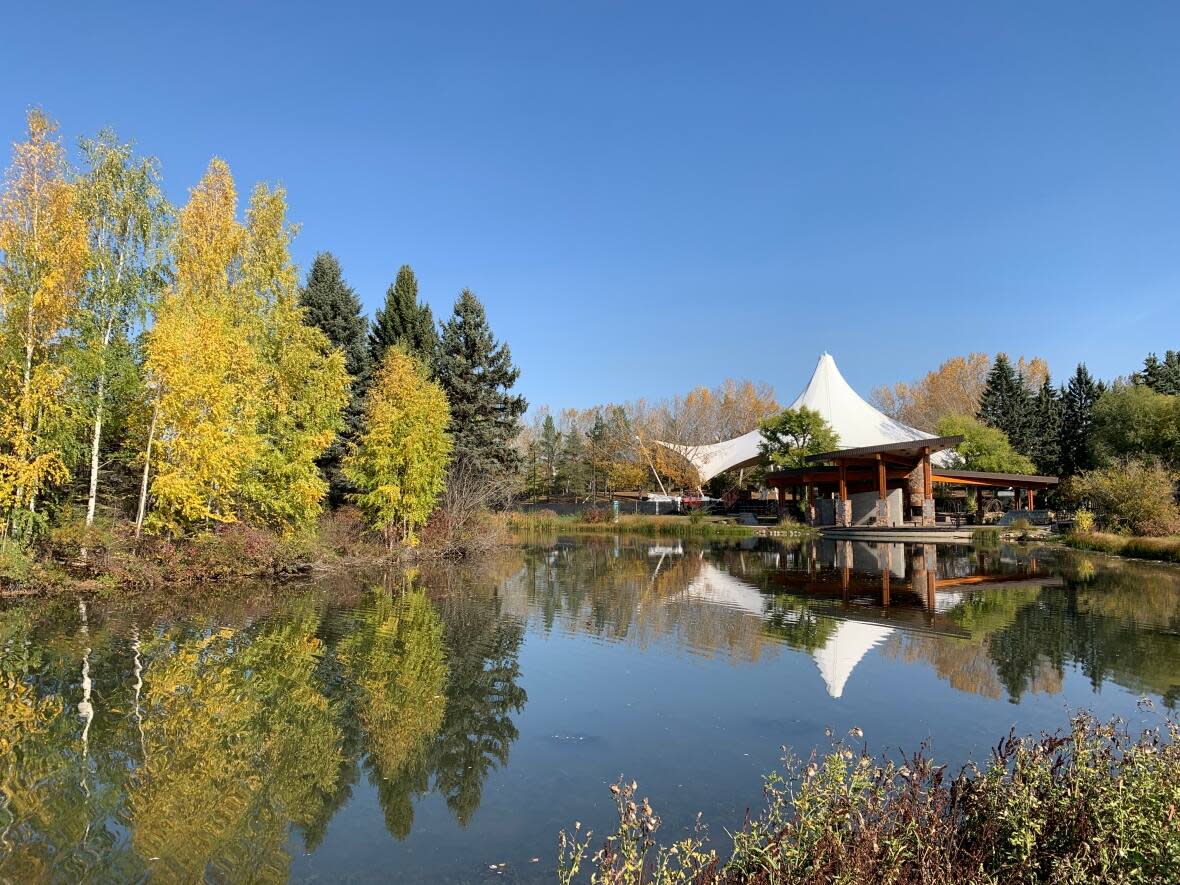Conservationists call on city council to stop Hawrelak Park tree removal

Conservationists are urging the City of Edmonton to stop the $134-million Hawrelak Park rehabilitation project and start again, first by consulting local Indigenous communities — something it didn't do before council approved the project.
Kristine Kowalchuk, representing the Edmonton River Valley Conservation Coalition, said the city is treating trees and the park like infrastructure instead of nature.
"This project presented such an opportunity for a rethinking of the entire park to make it a model in sustainability and reconciliation," she told city councillors at a meeting Tuesday.
The request also comes after an arborist's report shows more than 740 trees in a protection zone could be damaged in the construction.
The park is slated to be closed to the public during rehabilitation work, expected to take three years.
The committee didn't have time to debate the request Tuesday, but Coun. Erin Rutherford told CBC News that the project was debated and approved during budget session in December.
"I am not in favour of halting the project at this time, though I do think this highlights process gaps and timing sequence with environmental impact assessments that I look forward to digging into more," Rutherford said.
Pascale Ladouceur, branch manager of infrastructure, planning and design, presented an update on the tree management plan to council's urban planning committee.
Although an environmental impact assessment was done and approved last spring, the city is now releasing a tree preservation and inventory plan.
Of the 2,483 trees counted in the park's open spaces, 741 are located within the tree protection zone, meaning within five metres of work being done or a boulevard.
According to the new tree preservation plan, 544 will be protected with fencing or other protective measures, Ladouceur said.
From 220 to 197
The city revised the number of trees slated for removal — in January, the city estimated it needed to take down 220 trees; that's been revised to 197 trees.
Ladouceur said when crews start to work, they will evaluate what mitigation measures may be used to save some of the trees — potentially 85 of them.
"As field work progresses, we will better understand the outcome of these trees, all efforts are being made to protect as many as possible," she said. "However, in the event that no mitigation measures can be made of these 85 trees, they would be removed."
A final tree removal inventory will be prepared but Ladouceur didn't give a date for that release, calling it an "ongoing process."
The city plans to plant 300 new open space trees when the rehabilitation project is finished.
In urging councillors to consider halting the project, Kowalchuk referred to a situation in the 1970s when city council reversed the decision to build the Metropolitan Freeway along the river and through the MacKinnon Ravine, 10 years after it was begun.
"The ravine had been cleared, storm sewers constructed, and $1 million spent," Kowalchuk noted.
"Thankfully, city council had the wisdom then and the courage then to change course. We're looking to you to show that same wisdom and courage today."
Due to time constraints Tuesday, the committee agreed to resume discussing the reports and requests at a meeting June 1.


